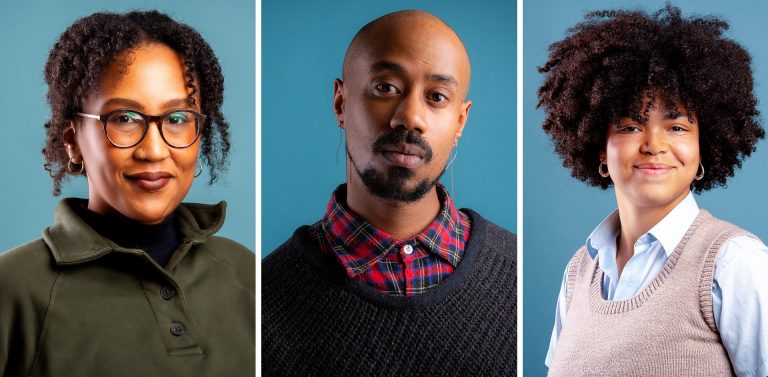The Black Perspectives Office announces three new fellowships for 2023

Concordia’s Black Perspectives Office (BPO) will provide three research fellowships in 2023 to highlight Black scholarship in Montreal, Quebec and beyond.
The BPO’s mission is to give funding, support, mentorship and advocacy for Concordia’s Black community, as well as to promote programming, content and cultural networks related to Black identity and advocacy.
“The research fellowship was created as a tangible means of fostering Black flourishing and promoting the richness and breadth of Black knowledges, skills and experiences,” says Maurice Riley Case, manager of the BPO.
“The fellowship serves as a means for Black Concordians to have full access to opportunities and spaces that have historically underserved Black communities. Supporting the amplification of Black voices and perspectives from across the diaspora and making room for Black intellectual traditions enriches Concordia’s community. Congratulations to this year’s recipients.”
Applicants can be students, faculty, staff and community members from all across Montreal, with priority given to Black student researchers at Concordia.
Anthony Mclachlan, Anick Jasmin and Dalia Elsayed are the three graduate students the BPO chose as fellows this year.
Spatial and municipal methods of policing hip hop in Montreal
Mclachlan’s research looks at institutions that regulate and define the mainstream social order.
“There’s a longstanding history that sees Blackness as being representative of a threat to an established social order and which therefore requires containment,” he says. Mclachlan’s work explores how institutions have evolved in relation to what they consider social deviance and disorder, particularly in relation to Black youth.
Hip hop is often considered to be a sign of social disorder by the white public, and as such it has been included in institutional arrangements of containment and supervision of Black youth, he notes.
“The need to police Blackness is at the foundation of law enforcement’s approach to policing hip hop–inspired cultural practices such as rapping, graffiti and breakdancing,” Mclachlan adds. His research questions Quebec’s historical relation to Blackness and the tactics it has used to police hip-hop culture.
Read Anthony Mclachlan’s interview.
Reconstructing the pathways of Black Haitian women in STEM
Jasmin’s research looks at the reasons why Black Haitian women are underrepresented in the STEM (science, technology, engineering and mathematics) fields.
“Haitians constitute one of the largest non-European ethnic groups in Montreal and women make up most of this community, but they are underrepresented in STEM,” she says. “This issue leads to social isolation, a lack of role models, mentors and academic support networks throughout the studies and the careers of those who choose these fields.”
Coming at her research from an interdisciplinary point of view, Jasmin seeks to illustrate how Haitian women in Montreal have distinct sociocultural experiences that define their views of society and their views of STEM.
“I want to understand their pathways, the obstacles they’ve had to face and overcome to achieve success. And I hope to fill in the knowledge gaps about the lived experiences of Black Haitian women in STEM.”
Read Anick Jasmin’s interview.
Interrogating how Blackness is constructed in Canadian higher education
Elsayed’s doctoral research seeks to understand how higher education institutions in Canada contribute to the construction of Blackness, particularly the identity development of Black female students, from a Black feminist perspective.
“I am motivated by various conversations surrounding the notion of Blackness, specifically on how Blackness can be seen or understood as a universal experience,” she says. “I often argue that Blackness is understood mainly through a North American perspective, which disregards different global articulations of Black identity.”
She adds that she’s interested in understanding the different narratives and frameworks that contribute to the construction and articulation of Black identity and identities globally.
Find out more about Dalia Elsayed.
Learn more about Concordia’s Black Perspectives Office.


